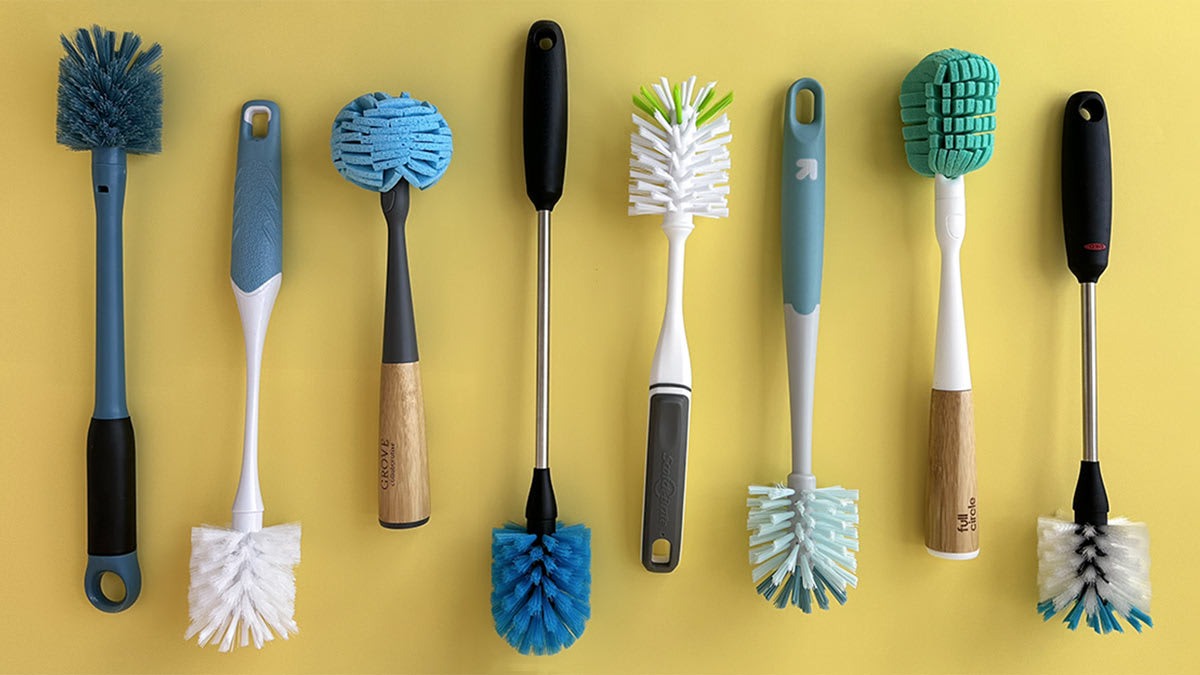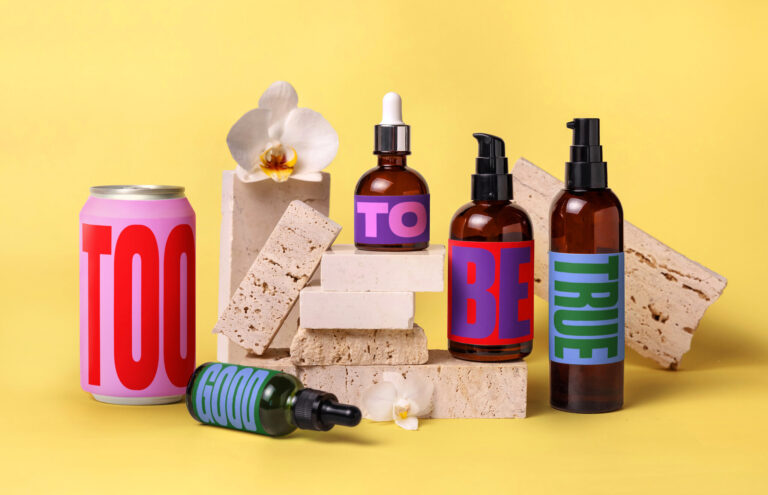The Ultimate Guide to Choosing the Perfect Bottle Cleaning Brush
From baby bottles to reusable water bottles, thermoses to vases, there’s one tool that can make all the difference between “sort of clean” and truly sanitized—the humble bottle cleaning brush.
While it might not be the flashiest item in your kitchen or cleaning arsenal, a good bottle brush plays a vital role in maintaining hygiene, saving time, and extending the lifespan of your favorite drinkware. If you’ve ever tried—and failed—to get your hand or a sponge into a narrow bottle neck, you already know the struggle. So let’s break down everything you need to know about bottle cleaning brushes, from how they work to which one is right for you.
What Is a Bottle Cleaning Brush?
A bottle cleaning brush is a long-handled brush with bristles designed to clean the inside of bottles, jars, pitchers, and other narrow or deep containers. It allows you to reach places where your hands or a regular sponge simply can’t.
These brushes come in a variety of shapes, sizes, and materials. Some are soft and bendable for delicate bottles or baby gear, while others are stiff-bristled and tough enough to scrub away dried smoothie gunk or coffee residue.
Why Regular Cleaning Tools Don’t Cut It
You might wonder: Can’t I just rinse the bottle or use a sponge on a stick? The short answer is—no, not effectively.
- Narrow openings: Most bottles, thermoses, and jars have small mouths that prevent deep access with cloths or hands.
- Residue build-up: Especially with beverages like milk, juice, or smoothies, residues can build up over time, leading to odors or even mold.
- Bacteria risk: Without proper scrubbing, bacteria can thrive in hard-to-reach spots, even if you rinse daily.
In short, surface cleaning isn’t enough. If you want to maintain safe, odor-free drinkware, a bottle brush is essential.
Key Benefits of Using a Bottle Cleaning Brush
- Deep Cleaning: Get into corners, curves, and narrow spaces that other cleaning tools can’t reach.
- Versatility: Clean water bottles, baby bottles, decanters, coffee pots, wine bottles, protein shaker cups, travel mugs, and even reusable straws.
- Hygiene: Prevent bacteria growth, especially in items used for milk or sugary beverages.
- Preserves Quality: Regular and effective cleaning prevents staining, buildup, and odor, prolonging the life of your drinkware.
- Eco-Friendly: If you’re committed to using reusable bottles, a brush ensures you can maintain them hygienically instead of replacing them prematurely.
Choosing the Right Bottle Cleaning Brush
Not all bottle brushes are created equal. Here’s what to consider when shopping:
1. Size & Shape
- Long handles are best for tall water bottles or baby bottles.
- Shorter, flexible brushes may be better for mason jars or glassware.
- Angled heads can help scrub corners and bases more effectively.
2. Bristle Type
- Nylon bristles are common and durable.
- Silicone bristles are non-scratch, hygienic, and easier to rinse.
- Natural bristles (like coconut fiber) are eco-friendly but may wear out faster.
3. Grip & Handle
Look for a non-slip, ergonomic grip, especially if you’re cleaning frequently or dealing with soapy, wet hands.
4. Detachable or Multi-Brush Sets
Some brushes come with interchangeable heads or smaller brushes for cleaning straws, lids, or bottle spouts. These kits are ideal if you’re cleaning bottles with multiple parts (like baby bottles or sports caps).
Cleaning Tips & Best Practices
Even your bottle brush needs cleaning from time to time. Here’s how to keep everything fresh:
- Rinse after every use: Remove food particles and soap residue.
- Air-dry completely: Moist environments breed bacteria.
- Disinfect weekly: Soak in a vinegar-water solution or run through the dishwasher if safe.
- Replace when worn out: Frayed bristles or moldy handles are a sign it’s time to buy a new one.
Specialized Uses
- Baby Bottle Cleaning: Look for brushes specifically labeled “baby-safe” and BPA-free. These often include smaller brushes for nipples and valves.
- Wine & Decanter Brushes: Choose soft, non-abrasive brushes that won’t scratch delicate glass.
- Thermos & Travel Mug Brushes: Look for extra-long handles and possibly brushes that can clean both the inside and lids.
Eco-Friendly Options
If you’re going green, there are bottle brushes made from biodegradable materials like bamboo, coconut husk, or plant-based fibers. Pair them with natural dish soaps for a fully sustainable cleaning routine.
Just remember: eco-friendly doesn’t mean less effective. Many of these brushes are just as good as their plastic counterparts—and gentler on the environment.
The Bottom Line
It might not be glamorous, but the bottle cleaning brush is one of the most underrated yet essential tools in your kitchen or cleaning routine. Whether you’re a busy parent, an office commuter with a reusable coffee mug, or someone trying to reduce single-use plastic, a good bottle brush helps you keep things clean, safe, and long-lasting.
It’s a small investment that pays off every single day—quietly but effectively.
Ready to make the switch or upgrade your cleaning tools?
Look for quality, durable brushes tailored to your daily needs. You’ll wonder how you ever cleaned without one.
If you want me to add product recommendations or optimize it for SEO, just let me kn
The Ultimate Guide to Choosing the Perfect Bottle Cleaning Brush
From baby bottles to reusable water bottles, thermoses to vases, there’s one tool that can make all the difference between “sort of clean” and truly sanitized—the humble bottle cleaning brush.
While it might not be the flashiest item in your kitchen or cleaning arsenal, a good bottle brush plays a vital role in maintaining hygiene, saving time, and extending the lifespan of your favorite drinkware. If you’ve ever tried—and failed—to get your hand or a sponge into a narrow bottle neck, you already know the struggle. So let’s break down everything you need to know about bottle cleaning brushes, from how they work to which one is right for you.
What Is a Bottle Cleaning Brush?
A bottle cleaning brush is a long-handled brush with bristles designed to clean the inside of bottles, jars, pitchers, and other narrow or deep containers. It allows you to reach places where your hands or a regular sponge simply can’t.
These brushes come in a variety of shapes, sizes, and materials. Some are soft and bendable for delicate bottles or baby gear, while others are stiff-bristled and tough enough to scrub away dried smoothie gunk or coffee residue.
Why Regular Cleaning Tools Don’t Cut It
You might wonder: Can’t I just rinse the bottle or use a sponge on a stick? The short answer is—no, not effectively.
- Narrow openings: Most bottles, thermoses, and jars have small mouths that prevent deep access with cloths or hands.
- Residue build-up: Especially with beverages like milk, juice, or smoothies, residues can build up over time, leading to odors or even mold.
- Bacteria risk: Without proper scrubbing, bacteria can thrive in hard-to-reach spots, even if you rinse daily.
In short, surface cleaning isn’t enough. If you want to maintain safe, odor-free drinkware, a bottle brush is essential.
Key Benefits of Using a Bottle Cleaning Brush
- Deep Cleaning: Get into corners, curves, and narrow spaces that other cleaning tools can’t reach.
- Versatility: Clean water bottles, baby bottles, decanters, coffee pots, wine bottles, protein shaker cups, travel mugs, and even reusable straws.
- Hygiene: Prevent bacteria growth, especially in items used for milk or sugary beverages.
- Preserves Quality: Regular and effective cleaning prevents staining, buildup, and odor, prolonging the life of your drinkware.
- Eco-Friendly: If you’re committed to using reusable bottles, a brush ensures you can maintain them hygienically instead of replacing them prematurely.
Choosing the Right Bottle Cleaning Brush
Not all bottle brushes are created equal. Here’s what to consider when shopping:
1. Size & Shape
- Long handles are best for tall water bottles or baby bottles.
- Shorter, flexible brushes may be better for mason jars or glassware.
- Angled heads can help scrub corners and bases more effectively.
2. Bristle Type
- Nylon bristles are common and durable.
- Silicone bristles are non-scratch, hygienic, and easier to rinse.
- Natural bristles (like coconut fiber) are eco-friendly but may wear out faster.
3. Grip & Handle
Look for a non-slip, ergonomic grip, especially if you’re cleaning frequently or dealing with soapy, wet hands.
4. Detachable or Multi-Brush Sets
Some brushes come with interchangeable heads or smaller brushes for cleaning straws, lids, or bottle spouts. These kits are ideal if you’re cleaning bottles with multiple parts (like baby bottles or sports caps).
Cleaning Tips & Best Practices
Even your bottle brush needs cleaning from time to time. Here’s how to keep everything fresh:
- Rinse after every use: Remove food particles and soap residue.
- Air-dry completely: Moist environments breed bacteria.
- Disinfect weekly: Soak in a vinegar-water solution or run through the dishwasher if safe.
- Replace when worn out: Frayed bristles or moldy handles are a sign it’s time to buy a new one.
Specialized Uses
- Baby Bottle Cleaning: Look for brushes specifically labeled “baby-safe” and BPA-free. These often include smaller brushes for nipples and valves.
- Wine & Decanter Brushes: Choose soft, non-abrasive brushes that won’t scratch delicate glass.
- Thermos & Travel Mug Brushes: Look for extra-long handles and possibly brushes that can clean both the inside and lids.
Eco-Friendly Options
If you’re going green, there are bottle brushes made from biodegradable materials like bamboo, coconut husk, or plant-based fibers. Pair them with natural dish soaps for a fully sustainable cleaning routine.
Just remember: eco-friendly doesn’t mean less effective. Many of these brushes are just as good as their plastic counterparts—and gentler on the environment.
The Bottom Line
It might not be glamorous, but the bottle cleaning brush is one of the most underrated yet essential tools in your kitchen or cleaning routine. Whether you’re a busy parent, an office commuter with a reusable coffee mug, or someone trying to reduce single-use plastic, a good bottle brush helps you keep things clean, safe, and long-lasting.
It’s a small investment that pays off every single day—quietly but effectively.
Ready to make the switch or upgrade your cleaning tools?
Look for quality, durable brushes tailored to your daily needs. You’ll wonder how you ever cleaned without one.
If you want me to add product recommendations or optimize it for SEO, just let me kn



